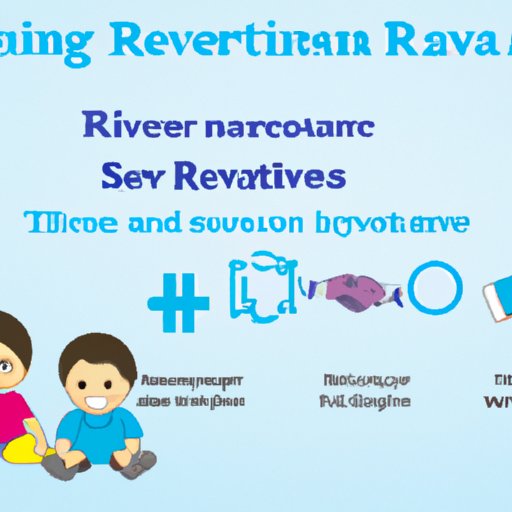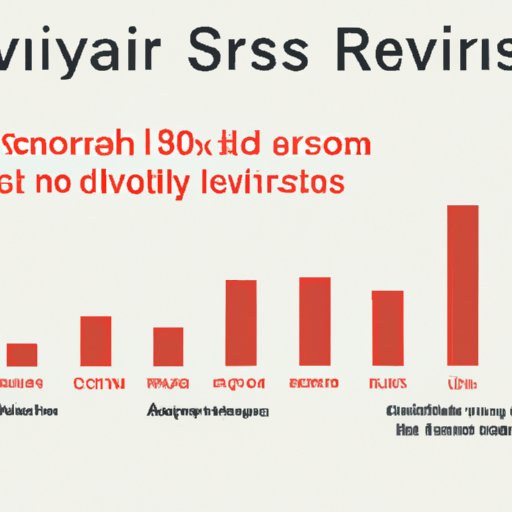Introduction
Respiratory syncytial virus (RSV) is a common virus that infects the lungs and respiratory system. It is highly contagious and can spread through contact with an infected person or from contaminated surfaces. Symptoms of RSV typically include coughing, sneezing, fever, and difficulty breathing. While it can affect people of all ages, it is most serious in young children and elderly adults.

Length of Contagion for RSV
If you have RSV, you may be wondering how long you’re contagious. According to the Centers for Disease Control and Prevention (CDC), an infected person can spread the virus for up to three weeks after symptoms first appear. However, this time frame can vary depending on certain factors.
How Long Is an Infected Person Contagious?
The length of time an infected person is contagious depends on the severity of their illness. Generally, an infected person will remain contagious until they no longer experience any symptoms. In some cases, an infected person may remain contagious even after their symptoms have resolved, so it’s important to take precautions to prevent spreading the virus.
Factors That Impact the Duration of Contagion
The length of time an infected person is contagious can vary depending on several factors, including age, underlying medical conditions, and the type of virus. For example, babies and young children tend to be more contagious than adults, as their immune systems are still developing. Additionally, people with weakened immune systems due to chronic medical conditions may be contagious for longer periods of time.

Risk Factors for Contracting RSV
Certain individuals are more likely to contract RSV than others. The following groups are considered to be at higher risk for infection:
Age Groups Most at Risk
Babies and young children are particularly vulnerable to RSV infection, as their immune systems are not yet fully developed. According to a study published in the journal Pediatrics, “Children younger than 2 years of age account for 80% of hospitalizations due to RSV.”
Other Risk Factors
In addition to age, other factors can increase the risk of contracting RSV. These include living in close quarters with large groups of people, having contact with someone who has RSV, and having a weakened immune system due to a medical condition such as HIV/AIDS.

Prevention Strategies for Reducing RSV Spread
There are several steps you can take to reduce your risk of contracting RSV and prevent its spread.
Hygiene Practices to Follow
Good hygiene is essential for preventing the spread of RSV. This includes washing your hands often, avoiding touching your face, and avoiding close contact with people who are sick. It’s also important to clean and disinfect surfaces regularly, especially if someone in your home is infected.
Vaccines and Immunizations
Immunizations and vaccines can help protect against RSV. The CDC recommends that all children receive the RSV vaccine to reduce their risk of infection. Additionally, the American Academy of Pediatrics recommends that infants born prematurely or with certain medical conditions receive a monthly injection of palivizumab, which is a medication that helps protect against RSV.
Treatment Options for RSV Patients
Treatment for RSV depends on the severity of the infection. Mild cases may require only rest and fluids, while more severe cases may require medications and hospitalization.
Medications
For more serious cases of RSV, medications may be prescribed to help ease symptoms and reduce the risk of complications. Commonly used medications include antibiotics to treat secondary infections, bronchodilators to open airways, and corticosteroids to reduce inflammation.
Alternative Treatments
In addition to medications, there are several alternative treatments that may help reduce symptoms of RSV. Some of these include drinking plenty of fluids, using a humidifier to relieve congestion, and using nasal saline spray to thin mucus. Additionally, research suggests that honey may help reduce coughing associated with RSV.
Conclusion
RSV is a highly contagious virus that can cause serious illness in young children and elderly adults. If you have been infected with RSV, it is important to take precautions to prevent spreading the virus. The length of time you are contagious depends on several factors, including the severity of your illness and underlying medical conditions. To reduce your risk of infection, it is important to follow good hygiene practices, get vaccinated, and talk to your doctor about treatment options.
(Note: Is this article not meeting your expectations? Do you have knowledge or insights to share? Unlock new opportunities and expand your reach by joining our authors team. Click Registration to join us and share your expertise with our readers.)
